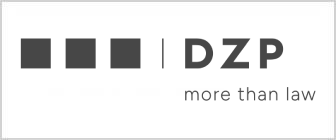Tax Practice won a dispute before the Supreme Administrative Court (SAC) concerning the tax liability of management board members for tax arrears of a company, causing unfavourable judgments of the court of first instance and a decision of the Director of the Tax Administration Chamber to be set aside.
The tax administration authorities ruled on the tax liability of two management board members for the company’s VAT arrears of almost PLN 5 million without interest. The two-instance tax proceedings ended unfavourably for the management board members, and the decisions holding them jointly and severally liable for the company’s arrears were upheld by the Voivodship Administrative Court (VAC) in Warsaw, which dismissed the management board members’ complaints.
On 21 May 2024, the SAC, as a result of the last resort appeals prepared by DZP’s Tax Practice, set aside the judgments of the VAC in Warsaw and the two-instance tax decisions (case numbers III FSK 4743/21 and III FSK 4998/21).
The attorneys held in the last resort appeals that the management board members were not able to actively participate in every stage of the tax proceedings, which shortcoming was approved by the VAC in Warsaw, and their arguments turned out to be crucial. In the cases at hand, the tax authorities initiated tax proceedings a little over a month before the expiry of the limitation period for issuing such decisions and, on a single day, issued decisions on the initiation of tax proceedings and decisions setting a 7-day period for the parties to express their opinions on the collected evidence (under article 200 of the Tax Code).
As a result, the management board members who opened the correspondence from the Tax Office learned on the same day that the tax proceedings had been initiated and, at the same time, that the evidence was already complete and the authority was ready to issue a ruling.
The main procedural objection of our advisers was that, in fact, the first instance tax authority, when notifying the management board members on the same day that the tax proceedings had been initiated and that they had the opportunity to comment on the collected evidence, had not conducted any tax proceedings.
The SAC agreed with our lawyers that this manner of proceeding by the tax authority was inconsistent with the principle of active participation of the party at each stage of the tax proceedings. In the SAC’s opinion, the authority’s action as a result of which the party learns at the same time about the commencement of the proceedings and their expected completion in seven days’ time, means that the investigation proceedings had not been conducted at all by the time the deadline was set for the party, and the party had no opportunity to actively participate in the case.
The SAC ruled that when the management board members received the decisions on the initiation of proceedings and the decisions setting a 7-day deadline for them to express their opinion on the collected evidence (which were issued on the same day), the fundamental principle of active participation of a party in tax proceedings expressed in article 123(1) of the Tax Code was violated, which could not be remedied by the appellate authority, as it is not authorised to conduct proceedings in whole or in substantial part on its own.
These judgments are extremely important not only for DZP’s clients, but also for other taxpayers, as they confirm that tax administration authorities cannot “take shortcuts” when initiating and
conducting tax proceedings, and that the approaching statute of limitations does not entitle authorities to deprive taxpayers of their basic rights and procedural guarantees.
The client was advised and represented at the hearing before the SAC by Paweł Suchocki, Senior Tax Manager, and Artur Nowak, Co-Head of the Tax Practice.


